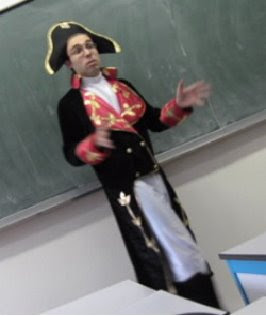Pictured: Amber Rydberg, 2007-2008 South Korea ETA (left) with Mrs. Shim, the KAEC/Fulbright Korea Executive Director on a Fulbright Korea ETA weekend retreat at Songnisan National Park
At the beginning of my senior year, I was aware of the Fulbright Program and what grants were available. Or so I thought. I knew there were research grants for those who had serious passions for very specific topics, of which I felt I had none. There was also a Fulbright Teacher Exchange Program for seasoned teachers, but I was just about to graduate from my undergraduate institution and not yet a teacher. And, there were grants for scholars, but I was also not one of those. Thus, in my mind, Fulbright, along with so many other fellowships available to soon-to-be graduates, sat on an out-of-reach pedestal.
Fulbright was removed from that unreachable pedestal when I was gearing up for a half-marathon with a friend. We touched upon every topic including the ominous, “So, what are you thinking of doing after graduation?” question. I wanted to go back to South Korea for the first time since my adoption and teach English for a year. That is when I heard about the Fulbright English Teaching Assistantship (ETA) grant for the first time. My friend told me she was applying for a Fulbright ETA grant to Taiwan. At her urging (and I will be forever indebted to her), she suggested I visit www.us.fulbrightonline.org and look into the ETA grants to South Korea.
I knew what I was looking for in my abroad experience from a previous stay in China. I worked in Beijing during the summer of 2006, and while there, I lived with a home-stay family: a mom, dad, and 9-year old daughter. I tutored my home-stay family’s daughter weekly and learned so much from her about life in China. Inspired by that experience, it became apparent that if I went to South Korea, I would want to teach English at the elementary school level. I would also want an opportunity to live with a home-stay family and to be immersed in the culture to learn as much as possible.
I spent hours on the Internet over the next few days researching ETA grants to South Korea and stumbled upon many useful resources. The most useful to me were the country summaries on the Fulbright U.S. Student Program website, the South Korea page and the South Korean Commission’s website. Some countries have Fulbright Commissions, and, South Korea is one of them. The South Korean Fulbright Commission’s website had answers to questions I hadn’t yet thought of. From orientation and home-stay information, to organized workshops and gatherings for grantees, the role the Commission plays, and ETA handbooks from previous years, the Korean Fulbright Commission’s website had a wealth of information waiting to be discovered by applicants like myself. It was a great way for me to decide if the Fulbright ETA grant was the right Fulbright grant for me.
My advice to prospective applicants: Start researching and thinking about the grant(s) you’re interested in early. There are ample resources available to you online: webinars and guidance sessions, videos, podcasts, Commission websites and the Fulbright U.S. Student Program website can help you to decide which grant you’re most interested in. It is important to understand the grant you’re applying for and what it entails before you start preparing your application. If you’re applying for an ETA grant, think about how you can be a cultural ambassador inside and outside the classroom while pursuing your own interests. If you’re interested in arts, maybe you’ll volunteer at an arts center. Do you like games? If so, maybe you’ll volunteer at an orphanage. Are sports your thing? Maybe you’ll join or coach a local soccer team, or begin learning a local, traditional sport. Like music? Learn to play a traditional instrument or join a chorus. There are many options. The project proposal is where you’ll want to clearly describe the passion you’re pursuing, what fuels that passion, as well as how your interests can guide you in your free time. Once you’ve written your proposal, have your peers, professors, and/or family members give you feedback. You don’t want to submit your application with any careless typos or spelling mistakes.

